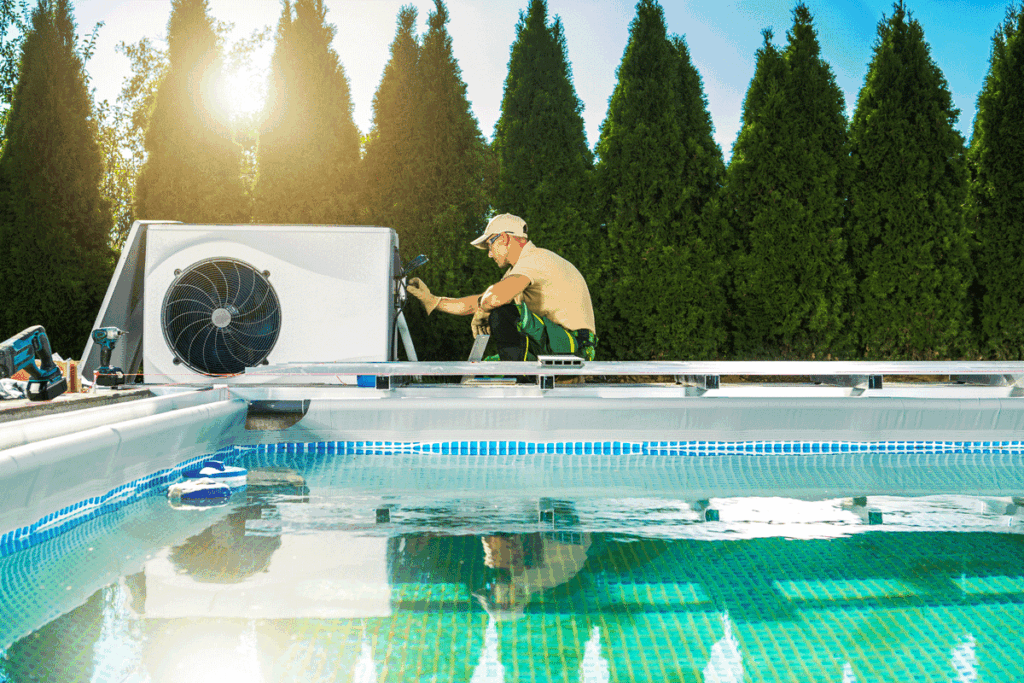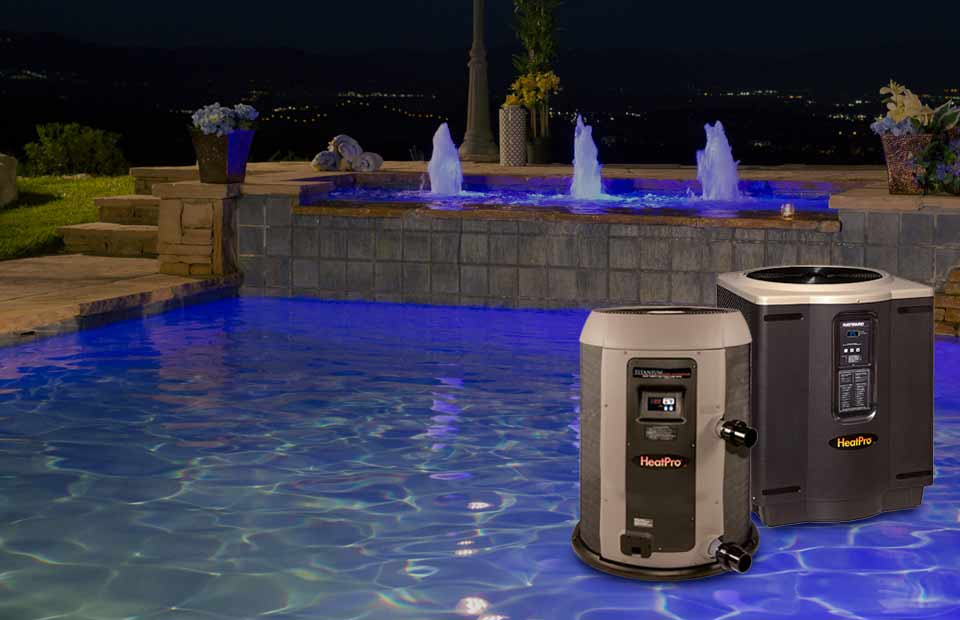Have you thought about extending your swimming season? With the right pool heater, you can enjoy swimming year-round. Choosing the right pool heater can be a daunting task, with various options out there. These are the pros and cons of natural gas pool heaters versus electric heat pumps to help you make a well-informed decision.
Natural Gas Pool Heaters:
Natural gas pool heaters have been around for a long time, making them a favorite for many pool owners. They are designed to use natural gas to generate heat, which is then transferred to the pool water, keeping it warm. Natural gas heaters are ideal for those who want their pools to heat up quickly, warmer, and they are often more powerful than electric heat pumps, making them the go-to option for large pools. However, natural gas heaters have a higher upfront cost compared to heat pumps, and they need a gas line or refillable tank to function. They can be scheduled to consume less energy but if running frequently are more expensive to operate than electric. This is a perfect option for when you’re at dinner and turn the pool heater on from your phone, to have a swim by the time you get home.
Electric Heat Pump Pool Heaters:
Electric heat pumps are another popular pool heating option that uses electricity to transfer heat from the surrounding air to the water inside the pool. Heat pump systems can be an excellent option for smaller pools and offer more environmentally friendly features, with 60- to 70% lower operating costs compared to gas heaters. They are also cheaper to install and maintain. Heat pumps work best in warmer climates as they don’t get the pool as hot. They run more frequently and pull temperature from air so you should consider your geographical location before choosing an electric heat pump.

Performance and Efficiency:
The effectiveness of either of these options depends on various factors, including the outdoor temperature, pool size, and desired water temperature. When it comes to performance, natural gas heaters are the preferred option during colder months, where heat pumps may struggle to keep up with the cold. Alternatively, a heat pump can run year-round, but their performance may decrease as temperatures get colder. In terms of energy efficiency, heat pumps are the best option, even though they have a lower heating output compared to natural gas heaters. This will help lower your utility bills in the long run.
Installation and Maintenance:
When it comes to installation, heat pumps are typically the easier option as electric exists at pool equipment already. They don’t require a gas line or tank, making them an excellent option for those who do not have a gas line. Both are also easy to maintain, requiring little to no maintenance, besides general cleaning and replacement of filters.
Conclusion
The choice between the two pool heater options rests solely on your unique preferences and needs. A natural gas pool heater might be a good option if you need your pool heated quickly, whereas an electric pump might be a better option if you want to reduce your environmental footprint. Make sure to consider installation and maintenance costs, overall efficiency, and pool size when choosing. Now that you have all the information, you can select the best pool heater to maximize your swimming joy and provide year-round use of your pool.
Contact Arrowhead Deck & Pools today to get more ideas.
FAQs
1) Which pool heater is best for fast heating: gas or a heat pump?
Gas heaters win for speed. They raise water temperature quickly and are great when you want to heat the pool on demand (like turning it on from your phone before you get home). Heat pumps warm more gradually and are better for maintaining a steady temperature over longer periods.
2) Which option costs less to run over time?
In most cases, electric heat pumps cost less to operate because they move heat rather than generate it, making them more energy-efficient. Gas heaters can cost more to run if used frequently, especially for maintaining temperature day after day.
3) Do heat pumps work in cold weather?
They can, but performance drops as outdoor temperatures fall. Heat pumps pull warmth from the air, so they’re most effective in warm or mild climates. If you want strong heating performance during colder months (or cooler desert nights), a gas heater may be the more reliable choice.
4) What size pool heater do I need for my pool?
Heater sizing depends on your pool volume, desired temperature increase, average air temperature, wind exposure, and whether you use a pool cover. Bigger pools and faster heating goals require more BTUs (gas) or higher output capacity (heat pump). A pool pro can size it properly so you don’t overpay upfront or end up with a heater that can’t keep up.
About the Author
Arrowhead Deck & Pools is a Phoenix-based team specializing in pool remodeling, decking, and outdoor upgrades built for Arizona living. We share practical guidance to help homeowners plan smarter projects and create outdoor spaces they’ll enjoy for years.
Website: https://arrowheaddeck.com/
Email: solutions@arrowheaddeck.com
Phone: +18558332525


